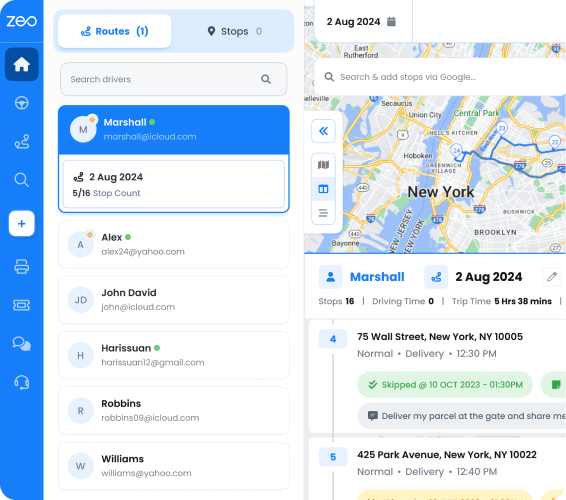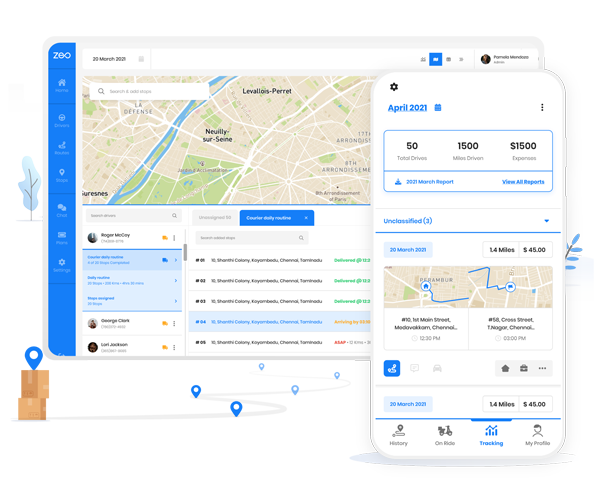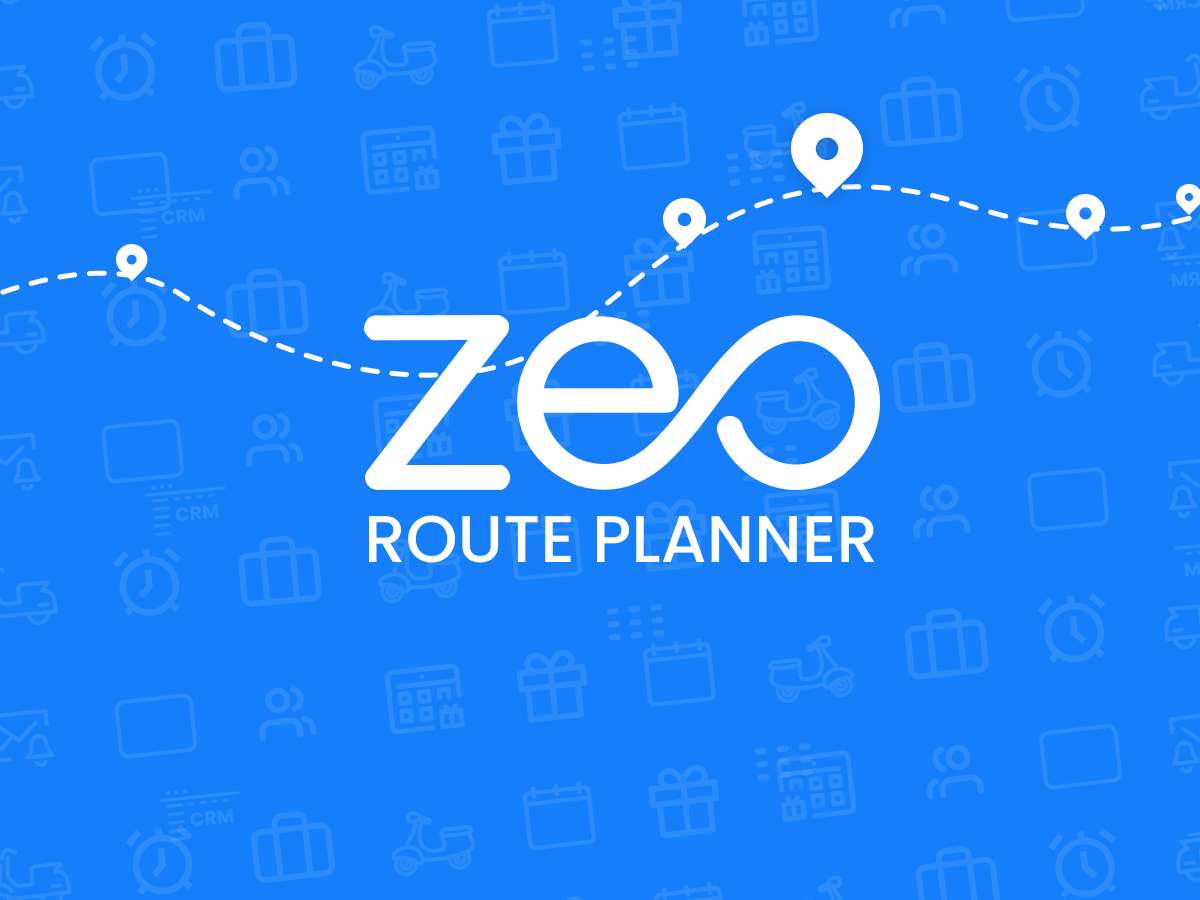Updated on: July 21, 2025
The future of transportation is more than just autonomous vehicles and electric fleets. It’s a world where the power of data and smart technologies come together to create a transportation and routing system that’s more efficient, sustainable, and secure. At the heart of this transformation are route planners for fleets. They are evolving from simple navigation tools to essential systems that drive operational success in an increasingly complex and tech-driven world. So, what does this future of transportation look like, and how can businesses ensure they are ready to thrive in it?
Let’s find out.
The Evolution of Transportation
Transportation has always been the backbone of commerce, but today, it’s undergoing a revolution. This evolution is being shaped by technological breakthroughs and shifting environmental priorities. Let’s explore the trends that are fundamentally changing how we think about fleet management and transportation:
- Autonomous Vehicles:
Self-driving vehicles are no longer a futuristic dream, they are fast becoming a reality. As more companies test and implement autonomous fleets, these vehicles will dramatically reduce the reliance on human drivers. This means fewer errors, fewer accidents, and much more precise adherence to optimized routes. Autonomous vehicles will depend heavily on route planners for fleets. - Electric & Hybrid Vehicles:
With the world’s increasing focus on reducing emissions, electric and hybrid vehicles are gaining widespread adoption. These vehicles not only lower carbon footprints but also reduce operational costs related to fuel and maintenance. However, the adoption of electric fleets introduces a new layer of complexity. Fleet managers will need to consider factors like vehicle range, charging station availability, and optimal charging times to ensure smooth, uninterrupted deliveries. - Smart City Infrastructure:
Smart city infrastructure, such as connected traffic systems and intelligent road networks, will play a significant role in improving urban transportation efficiency. Fleet managers will need route planners capable of integrating with this infrastructure, allowing for real-time adjustments to routes to avoid traffic bottlenecks, reduce idling times, and make deliveries quicker and more efficient. - AI-powered Routing:
AI-powered route optimization can process vast amounts of data, stop distance, traffic, road conditions, delivery time windows, and even driver performance, to find the most efficient routes. These AI systems can predict potential delays and provide alternative routes to avoid them, ensuring that deliveries remain on schedule, no matter the obstacles. - Carbon Footprint Tracking:
Companies are expected to monitor and report their carbon emissions, especially in fleet operations. It will become increasingly important to track fuel usage, emissions, and the overall environmental impact of every delivery. This not only helps companies stay compliant with environmental regulations but also positions them as responsible, eco-friendly brands. - Blockchain for Transportation Security:
In an age where data security is paramount, blockchain technology is revolutionizing how transportation data is stored and shared. From securing delivery logs to preventing tampering with route data, fleet managers will need solutions with a higher level of transparency and security. This will be particularly important for industries dealing with high-value or sensitive deliveries.
Also Read: Top 10 Fleet Management Trends in 2026
Role of Route Planners in the Future of Transportation
With transportation rapidly evolving, route planners will play an increasingly pivotal role in shaping the future of fleet management. Here’s how:

increase fuel savings
Save 2 Hours on Deliveries, Everyday!
Optimize routes with our algorithm, reducing travel time and costs efficiently.
Get Started for Free
- Navigating Autonomous Fleets:
Autonomous vehicles will require more than just GPS navigation. They will depend on real-time, AI-powered route planners to navigate complex routes, anticipate traffic patterns, and adjust delivery schedules dynamically. These planners will act as the brains of autonomous fleets, ensuring that every vehicle operates efficiently while reducing downtime and unnecessary miles. As autonomous vehicles become the norm, robust route planning will be non-negotiable for businesses looking to stay competitive. - Supporting Electric Vehicle Fleets:
The shift toward electric and hybrid vehicles comes with challenges – charging times, limited travel range, and the need for charging infrastructure. Route planners will need to evolve to accommodate these new variables, identifying the optimal charging points along a delivery route and ensuring the fleet maintains maximum efficiency without sacrificing sustainability. Businesses that integrate electric vehicles into their fleets will need route optimization solutions that account for these unique factors. - Smart City Integration:
Route planners will need to integrate with these smart infrastructures to make intelligent routing decisions. By doing so, fleets can reduce idle times at intersections, avoid congested routes, and make deliveries more predictable. This will not only improve operational efficiency but also reduce the environmental impact of each delivery. - AI-driven Optimization:
AI will be the game-changer in route optimization. As AI systems get smarter, they will provide more precise, real-time recommendations that adjust to changing conditions. These AI-driven route planners for fleets will enable businesses to stay ahead of delays, adjust routes dynamically, and deliver faster than ever before. The companies that embrace AI-powered routing will be able to outpace their competitors, cutting down operational costs and increasing customer satisfaction. - Sustainability with Carbon Tracking:
As sustainability becomes a key business differentiator, companies will need route planners that can track and optimize for carbon emissions. These tools will help businesses reduce their environmental impact by calculating the most fuel-efficient routes, minimizing emissions, and reporting their sustainability achievements to stakeholders and customers alike. - Blockchain for Secure Logistics:
Blockchain will revolutionize logistics security by providing immutable records of delivery data, ensuring the integrity of delivery logs, and preventing fraud. Route planners that incorporate blockchain technology will offer a higher level of transparency and trust to businesses, helping them secure their operations and protect sensitive delivery data from tampering.
Conclusion – Plan Your Business for the Future of Transportation with Zeo
At the heart of the transformation is the ability to adapt to the trends shaping the future of transportation. Zeo Route Planner is a cutting-edge routing software, offering fleet managers the tools they need to stay competitive. With smart route optimization, instant notifications for communication, and real-time analytics tracking sustainability metrics, Zeo is designed to meet the future needs of transportation head-on.
Whether your fleet is transitioning to electric vehicles, integrating with smart city systems, or striving to reduce its carbon footprint, Zeo Route Planner is your partner in this journey. By leveraging the latest technologies in route optimization, fleet management, and sustainability tracking, Zeo ensures that your fleet is always operating at peak efficiency, no matter the challenges that lie ahead.
Schedule a free demo with Zeo experts and step into the future of route planning.

Are you a fleet owner?
Want to manage your drivers and deliveries easily?
Grow your business effortlessly with Zeo Routes Planner – optimize routes and manage multiple drivers with ease.

increase fuel savings
Hassle Free Deliveries & Pickups!
Optimize routes with our algorithm, reducing travel time and costs efficiently.
Get Started for Free




















